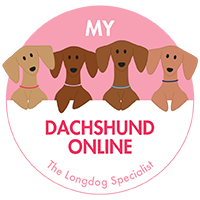Educate yourself about your dog’s behavior
If you have a nervous and anxious dog, start by learning more about what anxiety in dogs looks like. You can do this through books or online resources, but most - talk to your veterinarian for advice on how to help your pet with his condition. There are certain breeds that are more prone to anxiety than others, but there are also some factors early on in a dog’s life that can give them severe anxiety. For instance, rescue dogs are among the many that suffer from anxiety and nervousness from maltreatment, malnourishment, or other factors from previous owners. This is why it is best to educate yourself properly on how you can be the best owner for your pet.
Find a Vet that is Experienced with Treating Anxious and Nervous Dogs
This might be your local veterinarian, but if not - many others across the country specialize in this type of treatment. To find one near you, try searching online or asking at your own veterinary office where they would recommend seeing another professional. There are relaxants that can be prescribed to overly nervous and anxious dogs that might do the trick. However, this can oftentimes lead to an undesirable change in your dog’s behavior. Make sure to consult with your veterinarian before giving your dog any over-the-counter medications.
Avoiding “Aversive” Training Methods
If you have lived with an anxious dog before, they may have learned from previous experiences to avoid certain stimuli. For instance, being around children because of terrible memories involving them. When a dog learns this way, it can cause long-term damage physically and emotionally. Thus can only change through training methods that are not aversive.
Teach your Dog to be Calm
When a pet is nervous, he may show this by shaking, panting, or even trying to hide from you. If you are able, teach him how to relax instead of becoming anxious about situations that make him uncomfortable right away. For instance, as if children are coming over for the first time. You can do this with treats and other rewards at home while he feels safe until it becomes second nature for both of you. This may be easier said than done, so if you have the time it might be a good idea to consider third-party training. There are many professionals in the dog training field that can give your animal the training and help they need.
Keep Your Dog Busy
If you have a nervous and anxious dog, make sure that he has plenty of activities to enjoy around the house with his favorite toys or by going for walks. Keeping him occupied at all times will reduce frustration and give him an outlet to use up excess energy. Thus, he does not feel pent up inside when alone. It could be expressed outwardly through destructive behaviors—for instance, chewing on furniture or urinating in places other than his designated bathroom spot.
Keep Things Predictable
If you have a nervous and anxious dog, there will be certain situations that trigger your pet’s stress levels. At the same time, this is normal for pets with anxiety issues. It can become dangerous if they refuse to get used to these triggers over time without escaping the situation when around them. Make sure that everyone in the household follows the rules about not making loud noises. Also, throwing sticks/balls during playtime could scare him.
Do not Leave your Dog alone if he/she is Nervous
Whether you have a nervous and anxious dog or one who becomes agitated when left at home by himself for too long, it is important to never leave him unattended in this state. Find a friend or neighbor who can check on your furry companion until his behavior changes. Of course, there are alternatives to this if you are in a remote area or do not have the help of friends and family to watch your dog. You can turn on dog-friendly programs on the TV or play some soothing music to let your dog feel like they are not alone.
Consider Natural Remedies
Use anxiety relief CBD for dogs to see if natural remedies can help. CBD oil for dogs is made from the hemp plant, which can help your pet relax when he feels nervous about new things such as children or loud noises. It has been shown to reduce anxiety more than traditional medications like Xanax and Prozac combined. Also, it has a fast-acting time frame of 30 minutes. Thus, making it an excellent alternative treatment option that you can try before seeking professional veterinary guidance if necessary.
How much Exercise Does Your Dog Need?
Dogs become emotional if they do not receive enough physical activity. Why? Because their frustrations can build up over time, which causes them to act out more later. Even against those who love them most if they are left alone for too long with no exercise. Dogs need to be walked at least twice per day for around 30 minutes but enjoy more frequent walks.
Final Thought
While there is no magic cure to resolve every case of nervous and anxious behavior in dogs, these tips can help you manage your pet’s condition with a lower risk for injury or harm.
Written by Regina Thomas






Leave A Comment